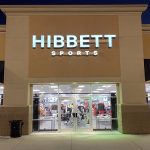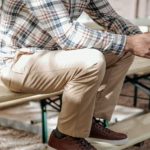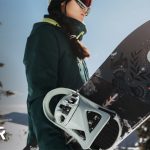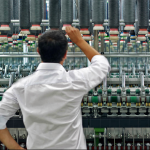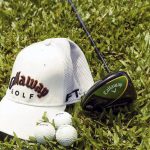Accell Group N.V. said sales rose by 1% to €577.2 million ($765.6mm), from €572.6 million in 2009. Poor weather conditions for bike sales in the fourth quarter and adverse exchange rate effects led to a drop in the operating result in the second half of 2010, compared with the same period of 2009. However, tax benefits and lower interest charges resulted in a rise in net profit of 11% to €36.4 million ($48.3mm) in 2010, compared with € 32.7 million in 2009.
“We can be reasonably satisfied with our overall performance in 2010, against the background of exceptionally poor weather conditions in 2010 and volatile exchange rate developments around the time of the changeover of bicycle collections in the summer,” said René Takens, CEO of Accell Group: “The drop in turnover was limited in the second half of the year, though turnover remained unexpectedly strong below our original expectations. Our companies were partly able to charge on the increases in exchange rate of the US dollar and Japanese Yen from April 2010 in new sales prices, although the price increases were received more positively in some segments than in others. In bicycles, last year once again saw greater sales in electric and sports bikes, while sales in city bikes were down. We noted the largest increase in turnover in parts and accessories. Barring unforeseen circumstances, we expect a further rise in turnover and result for 2011.”
Key developments in 2010
The weather conditions made 2010 an unfavorable year for bicycle sales. The long winter led to a late start to the bicycle season. May and August were very wet months and the low temperatures and snow also made the fourth quarter an unfavorable period for bicycle sales. The general economic conditions and the price increases also affected sales. The overall turnover in bicycles dropped slightly. However, sales of high-grade electric bikes and sports bikes increased once again. A clear rise in sales was noted in parts & accessories, both organically and via small-scale acquisitions, while there was a slight drop in the sale of fitness equipment.
Geographically, sales were €224.9 million ($298.3mm) in the Netherlands, €144.5 million ($191.7mm) in Germany, €53 million ($70.3mm) in France, €110.1 million ($146.0mm) in the rest of Europe and €43.9 million ($58.2mm) in other countries. By product, sales broke out to €425.8 ($564.8mm) for bicycles, €122.9 million ($163.0mm) for parts & accessories, €28.5 million ($37.8mm) for fitness.
Bicycles / bicycle parts & accessories
Turnover in the segment bicycles/bicycle parts & accessories increased by 1% to € 548.7 million in 2010 (2009: € 543.0 million). These activities thus accounted for around 95% of Accell Group’s total turnover. The demand for electric bikes, mountain bikes and special (target group) bikes in the middle and upper segments of the market developed positively, while the traditional city bikes and children’s bikes sold less well than in 2009. Total turnover in bikes dropped slightly on balance. Turnover in bicycle parts & accessories was up 13%.
The number of bikes sold dropped to 949,000 (2009: 986,000), while the average price of the bicycles sold increased further, to € 449 (2009: € 439). The change in the sales mix and the price increase of bicycles (2011 collection) affected the increase in the average price. The segment result dropped 10% to € 55.5 million (2009: € 61.6 million), due to the earlier mentioned circumstances.
As in 2009, the bicycle markets in 2010 were affected by further shifts in the types of bicycles sold, which made consumer demand more difficult to predict. Dealers were therefore more cautious in placing advance orders and building up stocks in the winter period. The generally less positive financing opportunities for dealers continued to play a role as well.
Compared with previous years, the weather in the first half of 2010 was unfavourable for the sale of bicycles. Nor did this change in the second half of 2010. The fourth quarter in particular saw lower sales than expected due to cold weather and early snow, which is why inventories and working capital were high at year-end 2010.
Turnover in bicycles / bicycle parts & accessories in the Netherlands dropped 5%. Demand for electric bikes and special (target group) bikes was once again positive. Sales of traditional models in the midmarket segment and children’s bikes continued to drop. The tax relief scheme for company bicycles in the Netherlands is set to change, which means it will be less attractive for employees and employers to buy company bikes. The impact of this change was felt in 2010, as several projects were abandoned.
In 2011, a further drop in the sale of company bikes is expected. Turnover in bicycle parts & accessories rose, as the maintenance and repair of existing bicycles increased when consumers did not (yet) decide to purchase a new bicycle.
Turnover in Germany was up, partly due to the acquisition of Batavus distributor Bäumker in January 2010. Sales of electric bikes rose substantially in Germany in 2010, while sales of other bikes dropped as a result of the early onset of winter and the effects of price increases for the 2011 range. Sales of bicycle parts & accessories continued to increase in Germany, partly as a result of increased sales of our own XLC brand and the addition of the parts turnover from Bäumker.
In France, Accell Group sold fewer bikes in 2010. Sales of sports bicycles in particular was under pressure, partly as a result of the implemented price increases. As in most other countries, sales of parts and accessories showed an increase, including those in XLC parts. Sales of electric bicycles under the Lapierre brand in France remained modest.
In Scandinavia, Tunturi-Hellberg saw its turnover increase, not only in its home market Finland, but also in the other countries. Exports of sports and mountain bikes in particular increased. This was true for eastern Europe and southern Europe as well as for outside Europe to Asian countries, where sales of sports bikes from Europe and the US is increasing. In several countries in Southeast Asia, sales activities have been initiated for selling Ghost, Lapierre and Koga bicycles. The turnover in Asia is modest, but is expected to increase in the coming years. Turnover in Belgium (including Brasseur) in both bikes and parts & accessories also increased in 2010.
In North America, consumers are showing a growing interest and willingness to buy bicycles. The bicycle turnover increased primarily through the sales of the BMX brand Redline bicycles. Turnover in parts & accessories stabilised.
Fitness
Turnover in the fitness segment dropped 4% to € 28.5 million (2009: € 29.7 million). This means these activities accounted for around 5% of Accell Group’s overall turnover. The segment result improved in 2010, to € -/- 0.4 million, compared with € -/- 2.5 million in 2009.
In the first half year, Accell Group saw a strong rise in turnover, particularly as a result of sales to new distributors, some of which was due to the replacement of existing distributors and some of which was in new countries. The second half year saw a drop in turnover compared with the same period of 2009.
This was largely due to a strong fall in demand from some major customers in North America. In addition, the closure of own operations in Germany and England and the replacement of these with third party distributors has decreased turnover for Accell Group. The downsizing of the distribution operations and adaptation of the organisation contributed to the drastically reduced cost base in the fitness division in 2010, which led to the strong improvement (€ 2 million) of the segment result.
Working capital also continued to decrease.
In 2010, a good start was made with the expansion of the product range to include fitness equipment for the professional market, in addition to home-use equipment. The first products developed specifically for this market were delivered to clients in the past year.
Outlook
As for now, Accell Group anticipates market dynamics in 2011 to remain high. As in previous years, there will be more shifts in consumer demand throughout the season. The fact that its brands operate close to their markets, allows Accell Group to adapt relatively quickly to consumer wishes. The willingness of dealers to build up own inventories will remain low for the time being, because of assumed good availability on the supplier side. These circumstances require more organizational flexibility in order to realize further growth of results.
In 2011, Accell Group will continue to actively search out possible acquisitions that fit within the group’s profile and brand portfolio. Acquisitions must be complementary and add value to the group in terms or returns and synergy in the short term.
Based on the above developments and barring unforeseen circumstances, Accell Group expects an increase in turnover and result for 2011.


